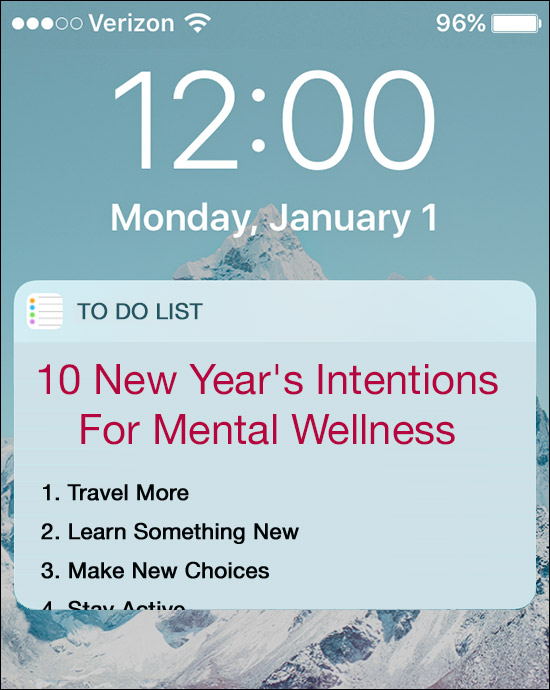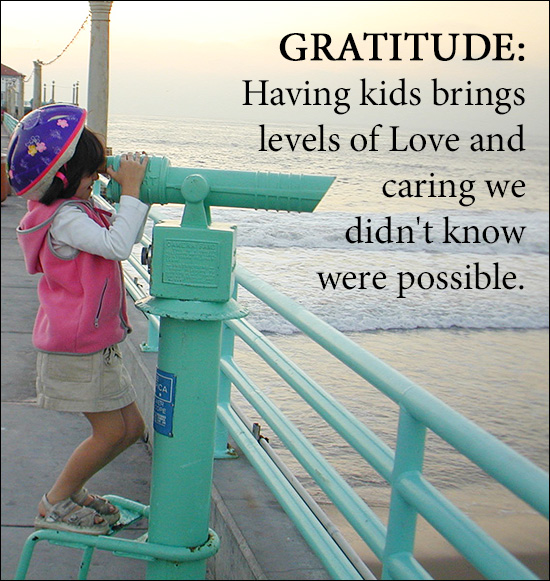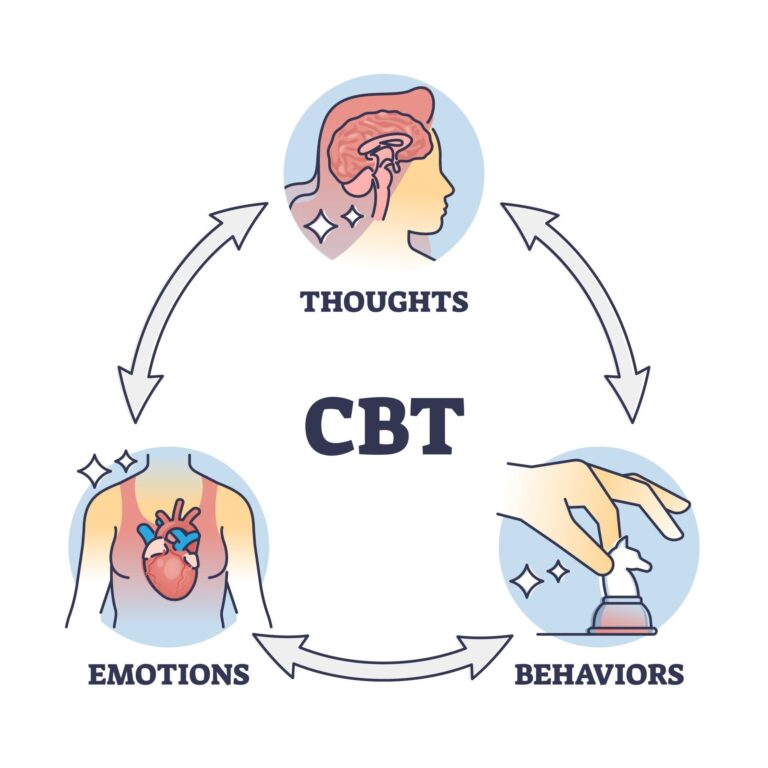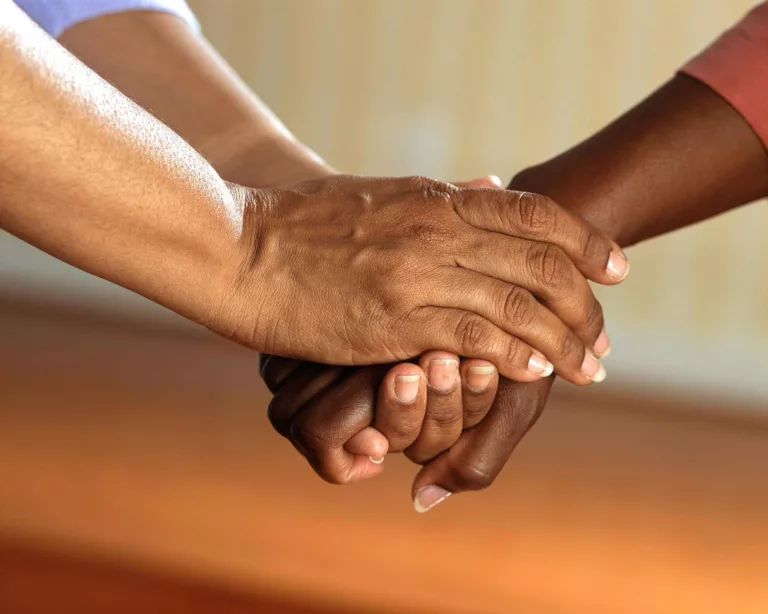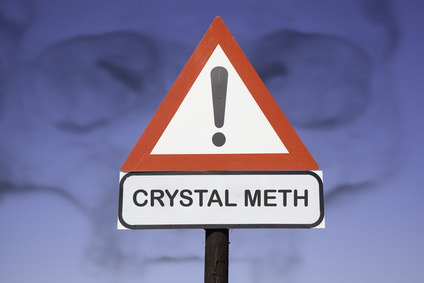More often than not, drug and alcohol addiction is spoken and written about in sweeping statistics. Newscasters or journalists report that a 23.5 million people needed treatment for dependency issues in one year.
What gets lost in these overwhelming numbers are the personal struggles of friends and family members, the people attempting to help the addict in their life cope with a difficult disease. Often times though, what feels like positive help, is actually negatively enabling an addict’s addiction to continue.
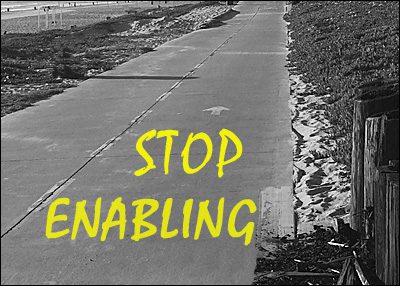
Most people in a healthy recovery have had enablers. These are sometimes relatives, friends or co-workers who, for the most part, unwittingly stoke the fires of their addiction by providing resources.
Often, these enablers believe their actions are helping the addict and are unaware that they’re being manipulated.
When these manipulative patterns are uncovered, it can then be a very discouraging challenge learning to engage with an addict instead of enabling their illness.
Here are 5 Tips to Help Break the Cycle of Dependency and Avoid Enabling Without Withdrawing Love and Support:
1. Money
While trapped in addictive behavior, many individuals will beg and plead for funds, suggesting that they need gas or need to see a doctor or that they’re starving.
Instead… offer to buy them a meal. If they’re willing to meet you at a restaurant, it’s possible to find out if they’re ready to seek treatment.
If not, then they weren’t provided with money to support their habit – only a meal.
2. Transportation
Lending a vehicle to a friend or perhaps even purchasing a car for a child struggling with addiction allows that person greater freedom and mobility to meet their supplier or get to a liquor store.
Instead… gently let them know that the only ride they’re allowed is to a treatment center, to meet with an addiction counselor, to a support meeting or a visit with a sponsor.
3. Communication
In much the same way a car enables addicts to fuel their addiction, providing or paying for a cell phone can do similar harm.
With a free phone, individuals can contact their dealers or other enablers to help them get high. Certainly, it’s nearly emotional torture not being in touch with a loved one who is hurting.
However, when they do call home, it’s the perfect opportunity to share how much they’re missed and loved and ask if they’re ready to seek professional medical help.
4. Housing
One of greatest hurdles families face is not allowing their loved one to live at home while using drugs or alcohol and refusing treatment. The need to care for our family members is instinctual.
Paying for a hotel room or an apartment or letting them stay in the house, though, only reinforces their ability to avoid the consequences of their disease, and avoid being responsible for their own life.
5. Bailout
Enabling an addict prevents them from falling hard enough to have a moment of clarity, or a moment when they realize they need and want help. This quite literally includes providing bail money when and if they’re arrested.
Though friends and family will inevitably worry about their safety and well-being, jail time can be a sobering experience. It might just be the thing that gets them into treatment.
It may sound harsh to say, but those who have been through it say they reached a point where they thought the only way to quit was to die or end up in jail.
Addiction is a serious disease that affects the brain and must be treated. No one would offer a cigarette to a friend with lung cancer, and yet with addiction this is exactly what happens when friends and family enable.
Knowing the symptoms and signs of dependency issues will increase the chances that you’re not unwittingly harming them, and that you only wish to help.
Offer all the Love and Support possible, engage with them, and try to help them get clean and sober. Enabling sobriety is the one time it’s okay to give in.
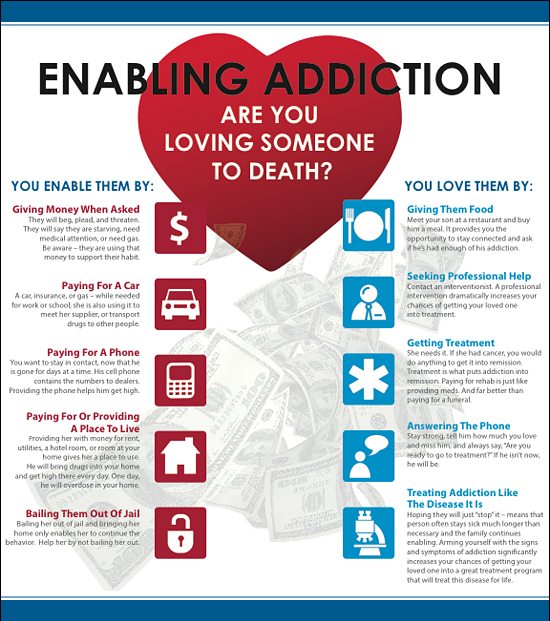
Related Info:
10 Ways How to Help an Alcoholic
Steps For a Positive Drug and Alcohol Intervention
Individualized Drug Addiction Treatment

